Student artwork will soon help raise awareness of sensitive P.E.I. beach habitats
It all started with a class trip for the grade 7/8 class at Immanuel Christian School to learn more about dune ecology and the sensitive habitat along the shore with staff from Island Nature Trust.
It was an eye-opening experience for the young students who learned to see the beach area in a whole new light.
"I learned that the sand dunes are really delicate and if you step on them, then that clump of grass where you step on will die and that affects the whole entire beach," said Grade 7 student Emika Jorritsma.
The lessons — modified to follow local public health guidelines at the time — fit in with what the students were learning in the classroom.
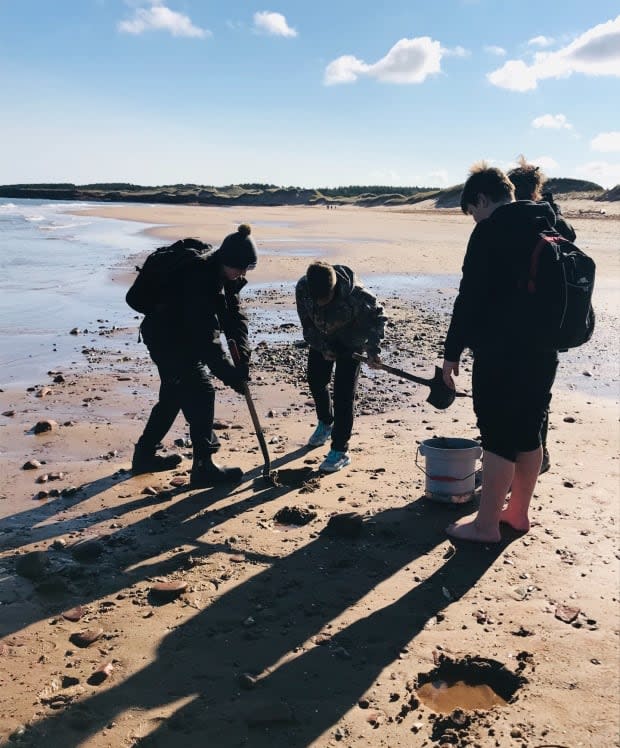
"Our first unit in science focuses a lot on how we can make a positive or negative influence on ecosystems around us," said teacher Becky Rogers.
"I think anytime that you can get the kids outside of the classroom and just see first-hand how they can make an impact on their environment, it just enriches the learning experience so much more."
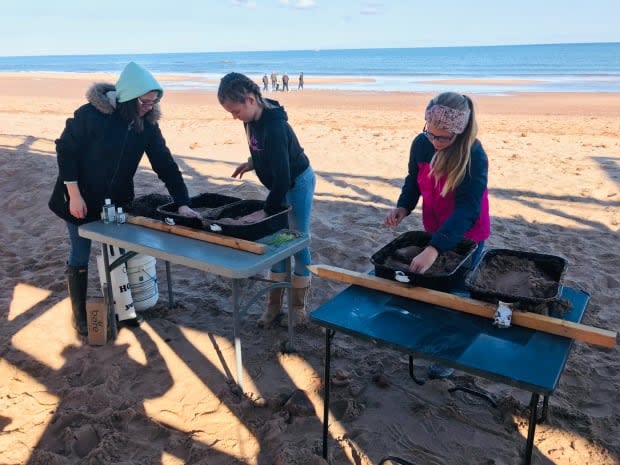
Nature as the classroom
The Island Nature Trust curriculum for Grade 7 P.E.I. students was developed in 2016.
The idea began with four watershed groups — Roseville/Miminegash Watersheds Inc., West Point and Area Watersheds Inc., Cascumpec Bay Watershed Association Inc. and Tignish Watershed Management Group — which partnered with Island Nature Trust to help develop the lessons.
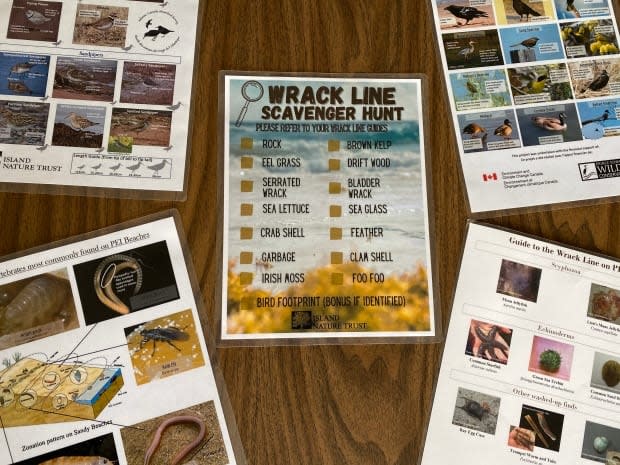
They wanted to raise awareness on how human activities were damaging the dune ecosystems.
Some weathering and erosion is normal for the beach shoreline, said Lyndsay MacWilliams, a land stewardship technician with Island Nature Trust.
"With climate change, the erosion and weathering rates have definitely increased and we have seen that around the Island," said MacWilliams.
"But we're also getting the damage coming from humans, so it's kind of like cutting down this system from both ways."

She was one of the instructors during the field trip — teaching lessons around the different ecosystems of the dune's life cycle, exploring the shore's high-tide line and invertebrate sampling.
The lesson made an impression on the students, who began work on art posters to share some of what they learned.
They were split into seven groups, creating posters with messages about not disturbing the wildlife, staying off the dunes and not littering.
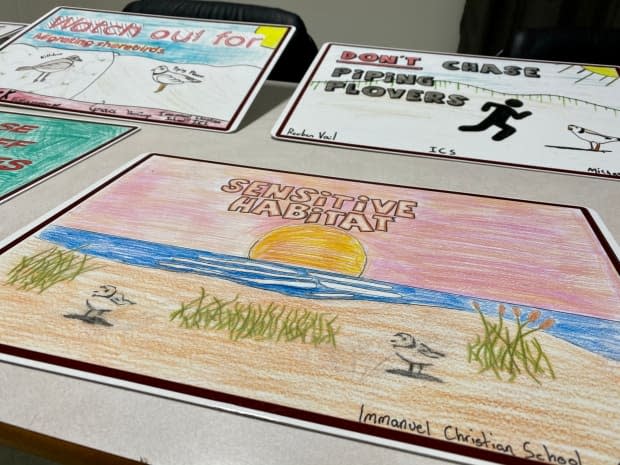
"My poster was about sensitive habitat, like, make sure that you're being careful whenever you are on the beach — watch where you're stepping," said Grade 8 student Graham Armstrong.
"Because there are some birds, they lay eggs in the sand and they're small so you can't really see them that well."
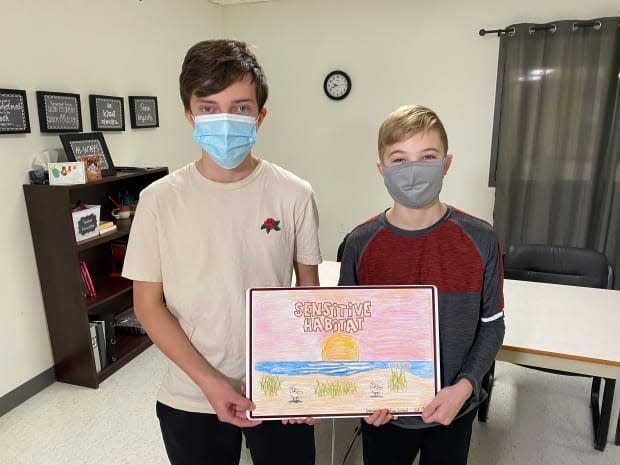
Rogers reached back out to Island Nature Trust and wondered if it would be possible to get the posters put up somehow, to share what the students had learned.
MacWilliams said they brainstormed for a bit, and decided the students work could be displayed on Barachois Beach near Rustico, P.E.I. The designs were then put on proper sign material to be able to handle the beach weather.

A plan was put together to go back out with the students in the spring to put the signs up.
This thrilled the students, eager to share the message they learned with others out enjoying the beach.
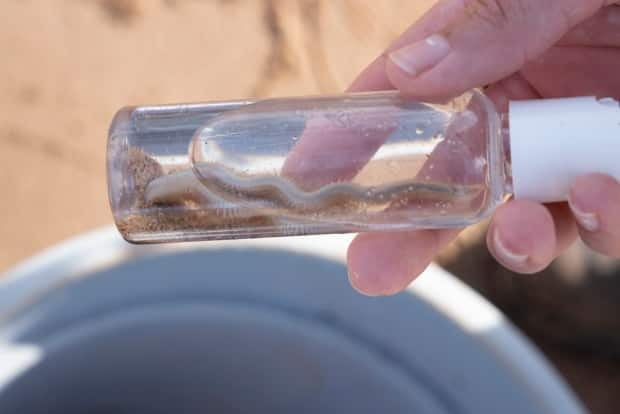
"I hope that they learn that there's sensitive habitat on the beach and that there are shorebirds that they need to look out for," said Grade 7 student Brayden Bootsma.
"Because they deserve a habitat too so that is why we should stay off the dunes."
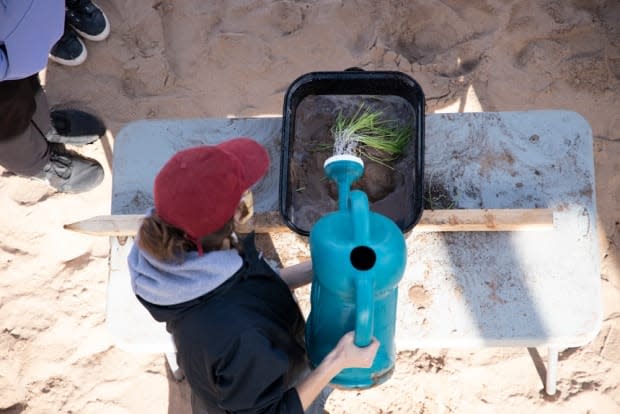
Rogers said it was a wonderful partnership with Island Nature Trust to help make it happen and get the kids so engaged in the project.
"I know that they've worked so hard on these posters and they're just really excited to be able to help other people go to the beach," Rogers said.
"I know they're really excited to be able to see what they made when they go to the beaches with their families."

MacWilliams said they were able to get out to deliver the presentation with five different Island schools in the fall and hope to reach more during the new year — while following all current public health guidance.
For MacWilliams, she hopes the excitement and engagement around dune ecology with the students continues.
"If they feel a certain way, like that they want to conserve the dunes, then if they voiced that, then maybe it will influence other youth that are the same age," MacWilliams said.
"It's also kind of good because you can kind of instill an interest in conservation at that age too if there is an interest in a future career or something like that."
More from CBC P.E.I.

